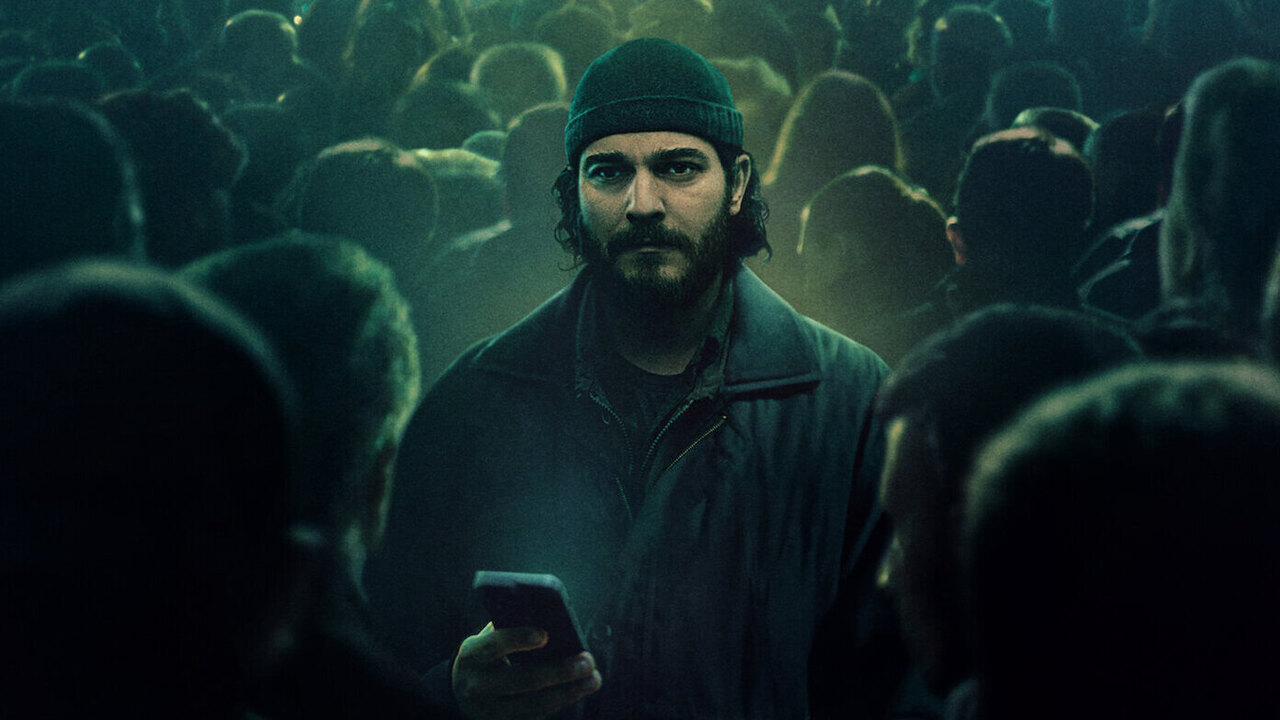
Kübra, like most of the Netflix shows, begins with a lot of promise. Gökhan (Çagatay Ulusoy) saves a child and is hailed as a local hero. But a text message starts to indicate that he might be a special person. How special? Well, the god talks to him through text messages. There is an app called SoulTouch where someone with the titular name claims to be Allah himself. The messages put a lot of mental strain on Gökhan. He is unable to digest this holy situation. His mother remarks that he is starting to behave in the same way as he did when he returned from the armed forces. The whole family, in fact, returns to an earlier emotional experience (Grief). It's like watching a sober man falling back into the arms of alcohol and drugs. Gökhan's sister, Gulcan (Ahsen Eroglu), who had been clean for many months, lights up a cigarette at one point. However, after an encounter with the dead, things become normal. Gökhan realizes that Kübra is God, and He is using him as a messenger. There is a stunning scene where the lights go out all over the city, and then a few seconds later, a mosque starts shining, giving rise to religious prayers.
Another amusing detail can be observed after Gökhan is accepted as the leader by a significant number of people. After doing his prayers, when Gökhan puts his hands in his pockets while descending the stairs, his followers copy his action. But like most of the Netflix shows, the problem with Kübra is that it becomes uninspiring after 2–3 hours. The dialogues become repetitious, as all anybody talks about is whether Gökhan's godly connection is real or fake. The show prioritizes this question over developing its characters in a meaningful way. Whenever they do something unexpected (like suggesting the use of fake bullets), they do so to merely shock the audience. This fake bullet thingy only accentuates how much this character loves another character, but that's something you keep seeing through her unwavering support and her devoted behavior.
Kübra simply doesn't have anything interesting to say. There are moments when you feel as if the show is about to enter a fascinating direction. For instance, when Gökhan's girlfriend, Merve (Aslihan Malbora), is treated as a celebrity by others, you think the show will do something dramatic with this point, like highlighting a greedy side of her. But the series almost instantly throws away any such notions. It doesn't even do anything with the jealousy Merve feels after reading flirty comments written for Gökhan. You suspect the journalist character would exploit Merve for her benefit and probably come in between her and Gökhan, but Kübra frustratingly makes bland choices. That journalist is just thrown in the background.
Whatever path Kübra walks on, it never appears new or unpredictable. A 20-year-old boy is killed, and we get into the territory of mob mentality. The subject itself isn't bad, though it's rendered spiritless through an unremarkable style. The camera passively observes the events instead of infusing life into them. Naturally, you feel as if the show is eating up the runtime. It merely wants to have eight episodes in it. Towards the end of the sixth episode, we are hit with a twist that quickly seems empty, given that a character does not reveal something to someone after talking about trust and truth (the reason, I guess, is quite obvious as well as lame: The series doesn't want you to quit watching it.). We are also never told why this character decided to conceal such crucial information.
Gökhan is such a boring character. Ulusoy's pretty yet one-note expressions don't do anything to make him watchable. It would have been better if Gökhan had been provided with more shades. Anyway, the final twist sends mixed messages. (Spoilers from here) It indicates AI can be destructive and evil, but because of it, the characters get someone like Gökhan, who helps the poor. So, AI is...good? God exists in the binary form in the digital age. He is another powerful entity created by humans after idols, temples, and religious texts. It all sounds nice on paper, but on the screen, the rewards are scant.
Final Score- [4/10]
Reviewed by - Vikas Yadav
Follow @vikasonorous on Twitter
Publisher at Midgard Times
Hi Everyone, after a due consideration, we have decided that we will be open for donations to help us in managing our website. We will be greatful for any kind of amount we receive. Thanks!
— Midgard Times 🎬 (@Moviesr_net) January 4, 2026
PayPal- [email protected] pic.twitter.com/DlNNz5Npm5
Get all latest content delivered to your email a few times a month.
Bringing Pop Culture News from Every Realm, Get All the Latest Movie, TV News, Reviews & Trailers
Got Any questions? Drop an email to [email protected]